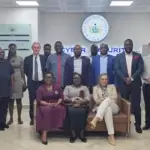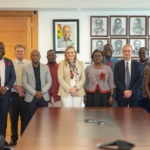
In one of the most sweeping economic reform packages in recent memory, the Government of Ghana has unveiled a transformational policy agenda backed by over GH¢22 billion in targeted investments to reshape the nation’s energy architecture, unlock new value from its gold resources, and mount an aggressive defence of its lands and waterways from environmental destruction.
The comprehensive programme, outlined in the 2026 Budget Statement and Economic Policy presented to Parliament, signals a decisive pivot toward energy self-sufficiency, industrial value addition, and environmental restoration — with implementation already underway across multiple fronts.
Energy Sector: A GH¢22 Billion Rescue and Expansion Plan
At the heart of the government’s reform agenda lies an unprecedented financial commitment to stabilize and expand Ghana’s troubled energy sector.
The government has allocated GH¢15.2 billion to address accumulated energy sector shortfall payments that have long strangled cash flow across the power value chain.
An additional GH¢4.8 billion has been earmarked to clear legacy debts owed to Independent Power Producers (IPPs) in 2026 — a critical intervention to restore investor confidence and stabilize long-term power supply contracts.
Finance Minister Dr. Cassiel Ato Forson told Parliament that cumulative shortfalls had reached alarming levels, with the sector recording a $2.2 billion deficit in 2024 alone despite government transfers exceeding $2 billion. The new funding injection aims to break this cycle of arrears while the government pursues deeper structural reforms.
Central to the transformation is the Gas-to-Power Strategy, which will phase out the costly use of light crude oil for electricity generation in favour of domestically produced natural gas.
Officials project this transition will slash power generation costs by at least 75%, dramatically reducing the fiscal burden on the national budget while cutting carbon emissions from the electricity sector.
In a move that captured national attention, the government announced plans to commence construction in 2026 of a 1,200-megawatt state-owned thermal power plant — a facility that would exceed the generation capacity of the iconic Akosombo Dam. The plant will utilize an additional 150 million standard cubic feet of gas daily from Offshore Cape Three Points (OCTP) partners and the Ghana Gas Processing Plant 2 (GPP-2).
“Mr. Speaker, 1,200 megawatts is bigger than what our almighty Akosombo can produce,” Dr. Forson declared, underscoring the historic scale of the investment.
To extend electricity access nationwide, the government has committed GH¢2 billion for Phase 1 of the Rural Electricity Acceleration and Urban Intensification Initiative, targeting underserved communities and strengthening urban distribution networks in support of the administration’s 24-hour economy vision.
Gold Sector Revolution: From Raw Exports to Continental Hub
In a landmark policy shift poised to redefine Ghana’s position in the global gold economy, the government is aggressively moving up the gold value chain—transitioning from raw doré exports to refined bullion production and high-value gold craftsmanship.
The Ghana Gold Board (GoldBod), in partnership with the Bank of Ghana and domestic refineries including the Gold Coast Refinery, began local gold refining operations in October 2025. The initiative represents a fundamental break from decades of exporting unprocessed gold while importing finished products at premium prices.
“It is a national shame that, as a long-standing continental leader in production, Ghana continues to export doré instead of bullion,” declared GoldBod Chief Executive Officer Sammy Gyamfi at the maiden Mining and Minerals Convention. “The Ghana Gold Board is determined to change this narrative as a matter of urgency.”

GoldBod has secured a strategic 0.6-acre parcel at the Cargo Village of Kotoka International Airport for construction of an ultra-modern ISO-certified Assay Laboratory and a wholly state-owned, international-standard gold refinery. The laboratory will upgrade Ghana’s gold assay regime from XRF and water density methods to the internationally recognized fire assay standard for all gold produced or exported from the country.
Looking beyond refining, the government has unveiled plans to establish a continental “Gold Village”** — an ambitious hub for gold jewellery design, manufacturing, training, and export that aims to position Ghana as Africa’s centre for premium gold artistry. The initiative is expected to generate skilled employment, diversify the local gold economy, and create a globally recognized brand around Ghanaian gold craftsmanship.
The gold programme is already delivering results. GoldBod has purchased and supplied nearly 100 kilograms of gold from seven large-scale mining companies to the Bank of Ghana, supporting a dramatic expansion of national gold reserves to 37.06 tonnes by September 2025 — up 21.3% from early 2025 and representing nearly a fourfold increase from 8.78 tonnes recorded in May 2023.
Between February and May 2025 alone, GoldBod exported 41.5 tonnes of gold worth approximately $4 billion, demonstrating the aggregation model’s potential to formalize the sector and substantially boost foreign exchange earnings.
Environmental Protection: Declaring War on Illegal Mining
The government has declared key rivers and forest reserves as security zones and is mounting an intensified campaign against illegal mining — locally known as galamsey — which has devastated an estimated 16% of Ghana’s landmass.
The government has allocated GH¢150 million to the National Anti-Illegal Mining Operations Secretariat (NAIMOS) to support nationwide operations against illegal mining, forest degradation, and waterbody pollution. The funding will support surveillance operations, enforcement personnel, and technological monitoring across high-risk zones.
NAIMOS, launched in June 2025 as a centralized, intelligence-led coordinating body, has already recorded significant operational successes. Joint security raids across the Eastern, Ashanti, Western, Central, and Western North regions have led to the seizure of over 50 excavators, three bulldozers, generators, and other mining equipment. Multiple illegal miners — including foreign nationals believed to be financing operations — have been arrested.
In operations between October 5 and 9, 2025, NAIMOS carried out coordinated raids across major galamsey hotspots, arresting 28 illegal miners and destroying numerous changfang dredging machines and processing camps. The secretariat’s resolve was dramatically illustrated when operatives rejected a GH¢100,000 bribe from an alleged galamsey kingpin who appeared at a raid site carrying a pistol.
The deployment of 1,000 officers to protect designated rivers and forest reserves reflects a renewed commitment to environmental protection. Blue Water Guards operating alongside NAIMOS have extended enforcement to the Western Region, seizing and destroying dozens of pumping machines and gold extraction units threatening vital water sources like the River Bonsa.
Climate Action: Green Investment and Emission Reduction
The government’s environmental agenda extends beyond enforcement to significant investments in climate-friendly infrastructure.
GH¢400 million has been allocated to the Integrated Recycling and Compost Plant (IRECOP) programme to enhance waste recycling, compost production, and sustainable waste management across the country. The IRECOP initiative, developed under Article 6.2 of the Paris Agreement, has already created over 1,000 green jobs — with more than 35% filled by women — while improving sanitation conditions for over 1.4 million residents.
The shift from light crude oil to natural gas in power generation will substantially reduce greenhouse gas emissions, marking a significant contribution to Ghana’s decarbonization commitments under the Paris Agreement. Feasibility studies are underway to evaluate the hydroelectric potential of the Red Volta and other rivers, laying groundwork for future renewable energy expansion.
Ghana currently has 68 climate projects in the pipeline, with four already approved covering sustainable cooking fuels, waste-to-compost conversion, and electric mobility solutions — practical interventions that reduce emissions while creating community-level economic opportunities.
The government’s digital land administration platform, set to enable online registration, transfer, and verification of land documents, represents another pillar of the modernization agenda — designed to reduce fraud, accelerate processing times, and improve transparency in land transactions.
Implementation Underway
With significant financial allocations now in place and implementation machinery activated across multiple fronts, the government says these reforms represent more than budget line items — they constitute a coordinated national reset aimed at transforming Ghana’s economic foundation.
The combination of debt clearance, infrastructure investment, value chain development, and environmental enforcement creates what officials describe as a unified approach to sustainable and inclusive development. Whether addressing the legacy inefficiencies that have plagued the energy sector, capturing greater value from gold exports, or defending natural resources from destruction, the policy package reflects an administration determined to reshape Ghana’s economic trajectory.
As GoldBod’s Sammy Gyamfi put it: “We are not just changing policy. We are changing the narrative of what Ghana can achieve with its own resources.”
For citizens, businesses, and investors alike, the message is clear: Ghana is betting big on transformation — and implementation has already begun.
- President Commissions 36.5 Million Dollars Hospital In The Tain District
- You Will Not Go Free For Killing An Hard Working MP – Akufo-Addo To MP’s Killer
- I Will Lead You To Victory – Ato Forson Assures NDC Supporters
Visit Our Social Media for More




